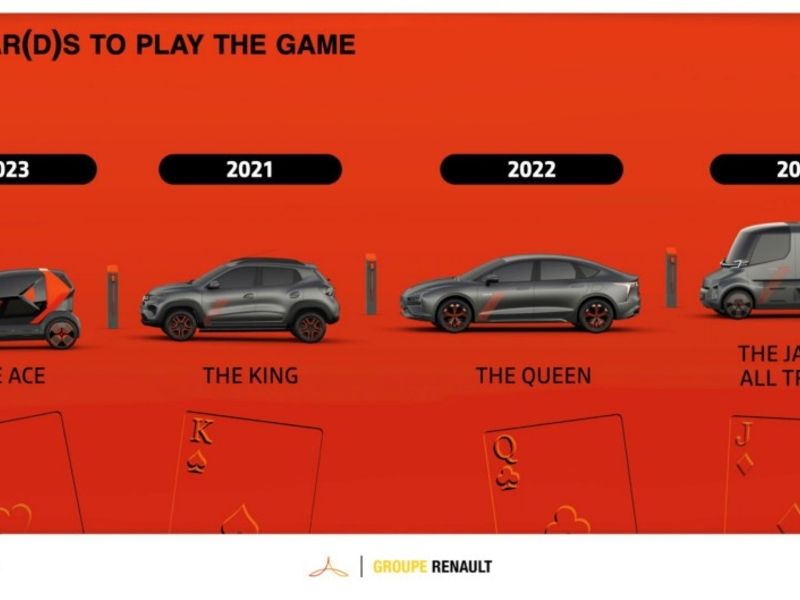
PARIS — Renault plans to introduce an electric vehicle built by one of the group’s Chinese joint ventures specifically for ride-hailing services in 2022, CEO Luca de Meo said.
The midsize sedan was first developed by JMEV, a venture with Jingliang Motors in which Renault holds a majority stake. It is known in China as the EZoom Yi and is expected to go on sale this year in China, according to news media reports there.
Renault has not released any details on the coming model, which is dubbed the “Queen” as part of four “cards to play” in the group’s new Mobilize mobility brand and business unit. Mobilize, which includes RCI Bank’s credit operations as well as services such as short-term rentals or car-sharing and last-mile deliveries, will be led by CFO and deputy CEO Clotilde Delbos.
De Meo says that Mobilize will account for 20 percent of Renault Group turnover by 2030.
According to reports in Chinese media, the Ezoom Yi has a power output of about 150 hp from its electric motor, and between 350 and 400 km of range, a figure confirmed by de Meo. Commentators have taken note that the EZoom logo is diamond-shaped and similar to the Renault “lozenge” logo.
“We redirected the project to make a design-to-purpose vehicle for ride-hailing, like for Didi (the Chinese service) or Uber,” de Meo said in an interview with Automotive News Europe. “Our idea is to use that as a perfect solution for these kinds of companies.”
“We’ve been discussing it with some mobility operators and they are very keen” on the vehicle and others proposed by Renault, de Meo said. The remainder of the “cards” range includes the Ace, a two-person vehicle not unlike the Renault Twizy or Seat Minimo concept (de Meo is former CEO of Seat); the King, the Dacia Spring; and the Jack of All Trades, based on the Renault EZ-Flex delivery van concept.
“There will be more ideas in the future, because the segmentation will be different — you have car sharing ,ride hailing, one-person vehicles, six-person vehicles, ‘last mile,’ food deliveries etc.,” de Meo added.
Renault has sharply scaled back its presence in China after an ambitious plan under former CEO Carlos Ghosn to sell more than 500,000 vehicles there by 2022 fell short. Last year the group halted passenger car sales and dissolved a joint venture with Dongfeng Motor that involved a factory in Wuhan.
The JMEV venture, which was established in 2015, holds a license to produce electric vehicles in China, which is the largest single EV market in the world, with an expected 1.3 million sales in 2020. That figure that is expected to rise to 1.8 million this year, trade group CAAM said.
De Meo said in the interview that if and when Renault returned to the Chinese market, it would do so in an innovative way. He noted that alliance partner Nissan had a strong presence in China. “If we go (back), it will take time and we will do something extremely new and innovative,” he said.
“I believe based on my VW Group experience that China is the locomotive of the whole automotive industry and will be for the next 20 years,” said de Meo, the former CEO of the Seat brand. “A lot of things will happen there from a product point of view, a technology point of view and a business model point of view, so we have to be there one day.”
In addition to JMEV, Renault has two remaining Chinese joint ventures: A partnership with Brilliance Jinbei focused on commercial vehicles; and eGT New Energy Automotive (with Dongfeng and Nissan) which builds electric vehicles, including the Dacia Spring that is launching in Europe this year.

